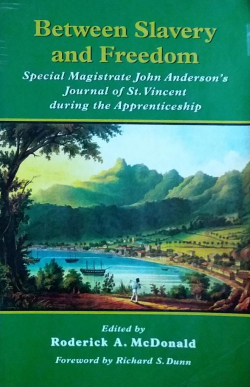Britain's Black Debt: Reparations for Slavery and Native Genocide

Buy online ($)
Type
Book
Authors
ISBN 10
976640268X
ISBN 13
9789766402686
Category
Unknown
[ Browse Items ]
Publication Year
2013
Publisher
Pages
312
Tags
Description
Since the mid-nineteenth-century abolition of slavery, the call for reparations for the crime of African enslavement and native genocide has been growing. In the Caribbean, grassroots and official voices now constitute a regional reparations movement. While it remains a fractured, contentious and divisive call, it generates considerable public interest, especially within sections of the community that are concerned with issues of social justice, equity, civil and human rights, education, and cultural identity. The reparations discourse has been shaped by the voices from these fields as they seek to build a future upon the settlement of historical crimes.This is the first scholarly work that looks comprehensively at the reparations discussion in the Caribbean. Written by a leading economic historian of the region, a seasoned activist in the wider movement for social justice and advocacy of historical truth, Britain's Black Debt looks at the origins and development of reparations as a regional and international process. Weaving together detailed historical data on Caribbean slavery and the transatlantic slave trade with legal principles and the politics of postcolonialism, the author sets out a solid academic analysis of the evidence. He concludes that Britain has a case of reparations to answer which the Caribbean should litigate.The presentation of rich empirical historical data on Britain's transatlantic slave economy and society supports the legal claim that chattel slavery as established by the British state and sustained by citizens and governments was understood then as a crime, but political and moral outrage were silenced by the argument that the enslavement of black people was in Britain's national interest. International law provides that chattel slavery as practised by Britain was a crime against humanity. Slavery was invested in by the royal family, the government, the established church, most elite families, and large public institutions in the private and public sector. Citing the legal principles of unjust and criminal enrichment, the author presents a compelling argument for Britain's payment of its black debt, a debt that it continues to deny in the face of overwhelming evidence to the contrary.Britain's Black Debt brings together the evidence and arguments that the general public and expert policymakers have long called for. It is at once an exciting narration of Britain's dominance of the slave markets that enriched the economy and a seminal conceptual journey into the hidden politics and public posturing of leaders on both sides of the Atlantic. No work of this kind has ever been attempted. No author has had the diversity of historical research skills, national and international political involvement, and personal engagement as an activist to present such a complex yet accessible work of scholarship for both activists and academics. - from Amzon
Number of Copies
1
| Library | Accession No | Call No | Copy No | Edition | Location | Availability |
|---|---|---|---|---|---|---|
| Main | 3 | F1629.B55B43 2013 | 1 | Yes |




